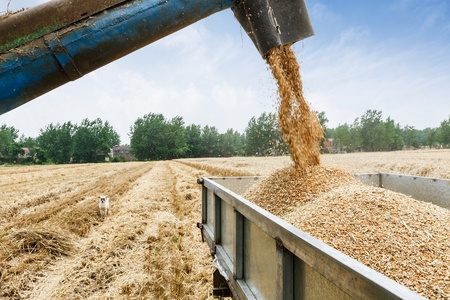A new tool has been launched today (January 31) which enables agriculture and food companies and others to identify reasonable greenhouse gas emission reduction targets for the sector.
About 25% of global greenhouse gas (GHG) emissions are caused by the production and consumption of agricultural products.
A large proportion of greenhouse gas emissions that are generated by the Agriculture, Forestry and Other Land Use (AFOLU) sector are generated right at the start of the food chain process. This new tool will allow companies to calculate the (cradle-to farm gate) emissions they are producing and will give them valuable insight into different methods they could follow in a bid to inform their sourcing strategy and to reduce their GHG emission levels, for example by switching to different commodities, or sourcing from different regions with different agricultural practices.
Funded by the KR Foundation, scientists from the University of Aberdeen, PBL Netherlands Environmental Assessment Agency and Ecofys have developed the tool to help agriculture and food companies to meet the commitments made under the Paris Climate Agreement to keep the increase in the global average temperature well below 2 °C.
The tool is based on consistent scenarios developed using the IMAGE model, a model describing economic activities and climate change consequences. To support the tool, the IMAGE model was used to explore emission trajectories and plausible targets for different agricultural products for CO2 emissions from land-use change and non-CO2 greenhouse gases.
GHG emissions from the AFOLU sector represent approximately a quarter of global GHG emissions emitted by humans (10 - 12 GtCO2eq per year). The aim is to reduce this number by half by 2050. At the same time, agricultural production is expected to double. To meet this challenge, companies need to act fast and need guidance to align their GHG emission reduction with climate science.
Today the team have launched the final report and online tool which features science-based GHG emissions targets for meat, dairy, pigs, chicken, rice, maize, wheat, soy and, palm oil and round wood production. The tool will allow the user to select a commodity and a region, and to calculate how much emissions this would produce. Multiplying the pathway with the projected production, the tool also calculates the company’s future absolute emissions target.
Professor Pete Smith, who led the University of Aberdeen team in the project, said: “This is a significant step forward toward providing a roadmap for emission reductions in the agriculture and forestry sectors. This is especially challenging since greenhouse emissions from the land sector are so complex – so we are delighted to have made a significant step to making this a reality.”
Giel Linthorst of Ecofys said, “The new methodology is inspired by the Science Based Targets initiative of CDP, UN Global Compact, the World Resources Institute (WRI) and WWF and based on the related Sectoral Decarbonization Approach developed for this initiative with technical support from Ecofys, and we are very pleased to have had this opportunity to extend it to the AFOLU sector.”
Professor Detlef van Vuuren from PBL Netherlands Environmental Assessment Agency added: “This collaboration has brought together specialists for the integrated assessment modelling community, the agricultural greenhouse gas community and corporate emission reduction target setting experts. This allowed us to take different perspectives into account in developing the tool and the report, making them more powerful.”
For more information and to view the tool, please visit https://fcrn.org.uk/research-library/science-based-target-setting-tool-agricultural-commodities-be-used-businesses


